To save money or to pay off debt? That is the question.
It’s like one of those old age questions. Which comes first: the egg or the chicken?
If you ever found yourself in this position, what would you do? Moreover, which is better: saving money or paying off debt?
The recent recession brought about by the global pandemic put many Americans under financial strain.
During the third quarter of 2021, consumer debt is at 15.24 trillion dollars, the majority of which falls under mortgages.
Covid-19 deeply impacted many Americans on their finances. With job retrenchment and businesses closing down, this might already happen to you, or probably you know someone who does.
Of course, these debts come in many forms, and we’ll talk about that later.
However, the good thing is that now we’re slowly transitioning into the new normal and post-pandemic way of life. Hopefully, we all can recover and learn from our past financial mishaps or anything of the sort.
Aside from that, many Americans also struggle to set aside more money.
It becomes rigid, especially during the pandemic, whether to start their emergency fund, boost their specific savings goal, or earn additional money.
What more if you have a pile of debts on top of your savings goal to take care of? How to get your financial priorities straight?
Let’s talk about saving money or paying off debt in this post. Once and for all, let’s end this long debate.
Furthermore, at the end of this post, our goal is to help you better manage these two fundamental financial aspects and give equal importance to both.
So, enough with the dilly dally. Let’s get started!
Related content:
- How To Stop Living From Paycheck to Paycheck – 10 Realistic Tips.
- 32 Realistic Ways to Save Money Very Easily Without Giving up Too Much.
- 17 Money-Saving Challenges to Definitely Help Save More than Before.
Is it better to pay off debt or save money?
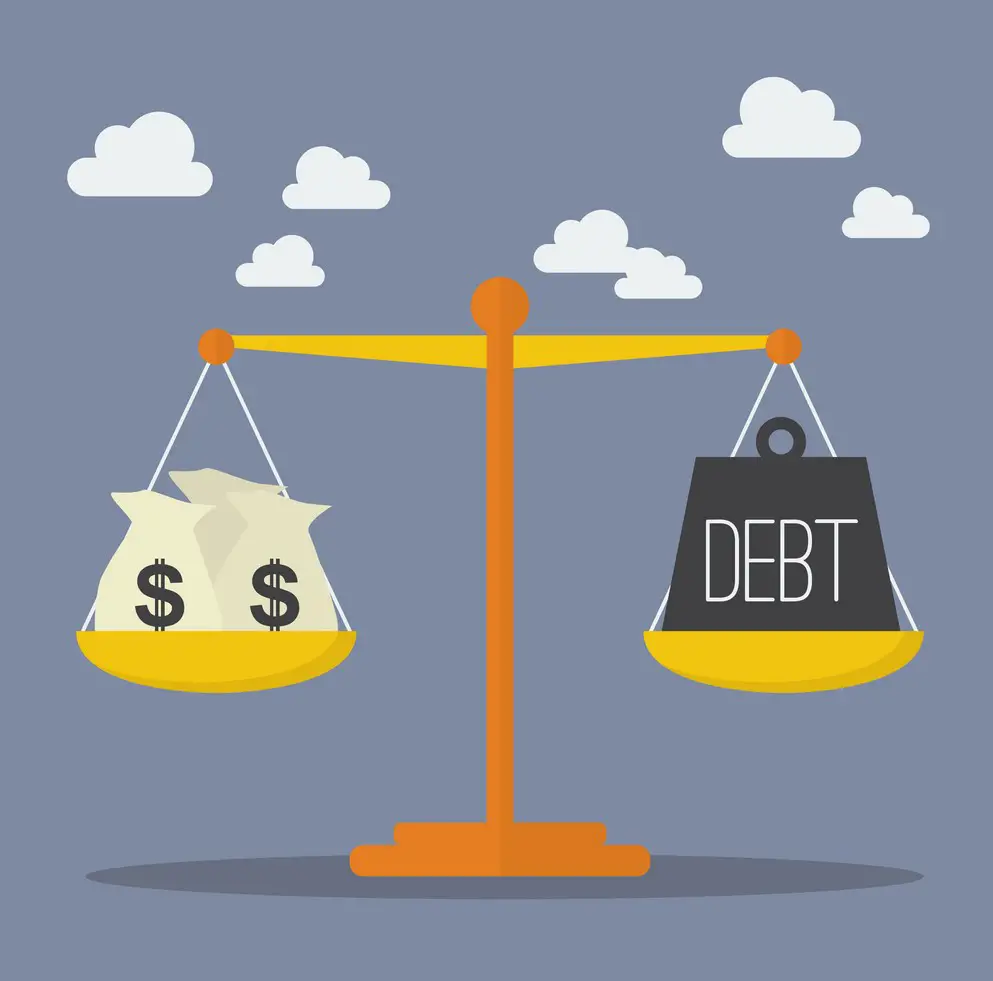
Here’s our advice. Do both, if you can. However, give equal importance and prioritize striking a balance between saving money or paying off debt.
Furthermore, it depends on one’s unique life situation and where you are on your financial journey.
If you have high-interest debts, it’s probably better to tackle them down first. You must pay more than the minimum balance and keep in mind to pay it off in full and on time- that is the general rule of thumb.
However, if you’re currently struggling and all these bad debts are all over the place, there is two common and effective method that you can employ (more on this later)
On the other hand, if you have little to no debts, you can prioritize saving more money. In addition, you should start building your emergency fund, which is three to six months’ worth of your expenses.
That way, whenever life gets crazy, you have a safety net to fall back on— for example, a sudden job loss, car repair, house improvement, etc.
But then again, it’s also okay to do both. That means you are simultaneously saving money while paying down your debt or vice versa.
No law or complex rule states you should only do and choose one. It’s not set in stone.
If you can, and your financial status allows you to do so. Besides, if you worry or feel intimidated about saving a tiny amount, you can start tucking away even a small amount to save, and once you get comfortable, you can add up.
Here are a few guidelines to help you decide.
Pros of saving money
- Probably the best thing that saving money can offer is the advantage of compound interest. More significantly, if you start sooner.
- Having an extra cash cushion will help you stay afloat once unexpected life events came up.
- Saving money also lets you avoid accumulating more debts.
- Instead of waiting until you pay your debts, you can work towards your financial timeline and achieve your savings goals.
- Getting a headstart on your savings can also help you achieve your long-term goals—for instance, your dream house, kid’s education, and more.
- Lastly, you also learn to build a significant financial habit of saving money.
Pros of paying down debt
- If you have high-interest debt, you can cut down the amount of interest paid over time.
- Immediately paying off your debt will lift the emotional and mental burden you’ve been carrying on for so long.
- Another good thing about prioritizing paying off debt is it improves your credit score.
- You will be financially free, and it’s unlike anything in this world.
- Once your debt is paid, you can now focus on other financial aspects like savings, investing, or earning more.
How much money should I save before paying off debt?
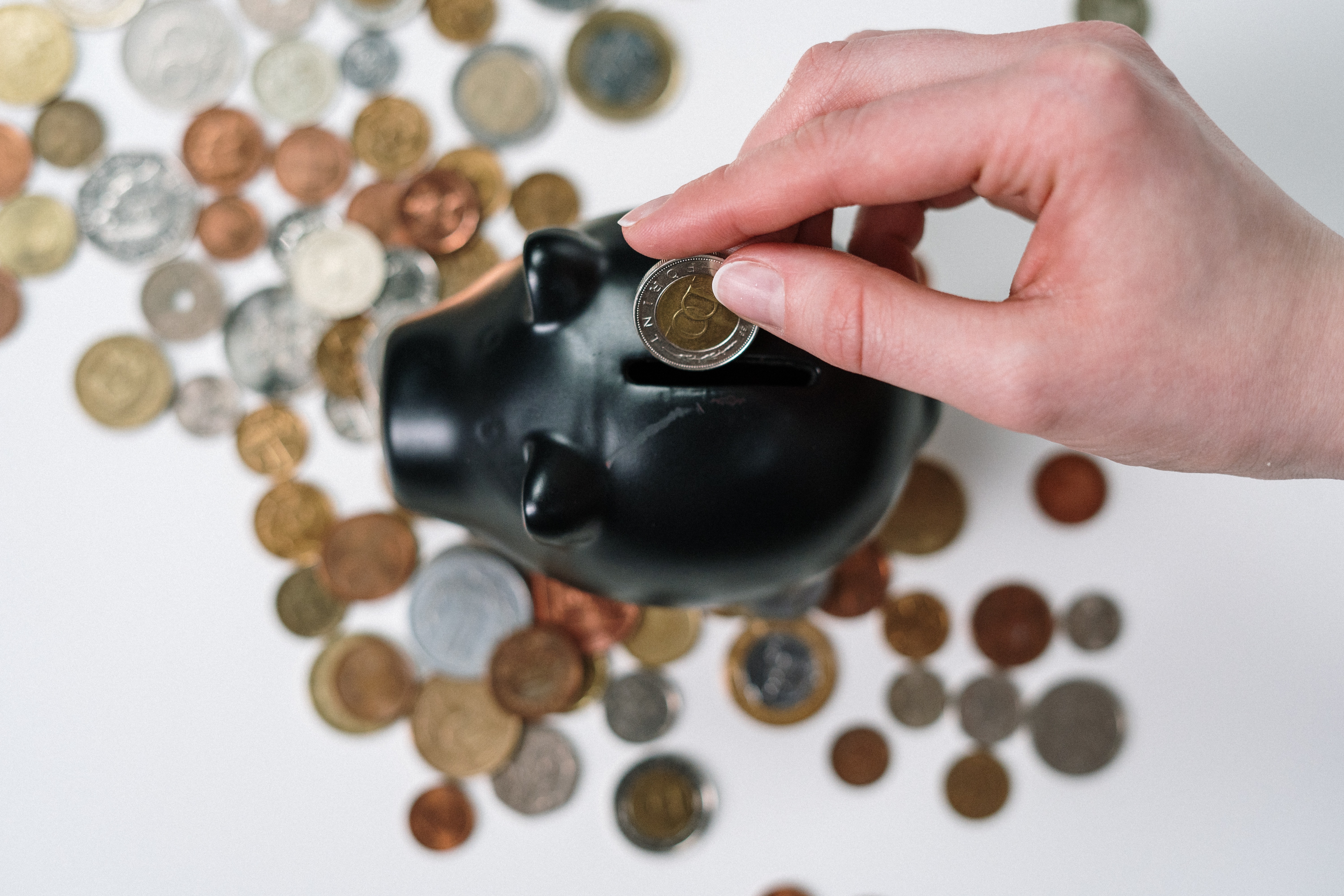
Ideally, it would be best if you had three to six months’ worth of money to save. That is your emergency fund. That way, you have extra money to use instead of continuously racking debts on and on.
But, if money is tight, it’s okay to start low. As long as you can set aside even a dollar every paycheck, it won’t be long until you realize that you’re slowly but surely building a snowball of savings. Then once you’re comfortable leveling up, you can increase your savings rate to a higher or attainable amount.
Therefore, you should multiply your current income by three or six. Then, the amount equals will be your emergency fund.
Should you empty savings to pay off debt?
Depleting your savings to pay off debt puts you in a risky position. You will be trapped in an endless vicious cycle of living paycheck to paycheck, worse, making ends meet.
Think about it. What about your other expenses if you ditch your savings for debt repayment? Moreover, how about sudden unexpected or even expected expenses?
Hence, experts recommend separating your savings and your money for paying off debts. That is one way of giving your money a job.
Saving money or paying off debt: The best approach

Carrying debt with high interest can cost you more money in the long run. But, at the same time, waiting to save is not ideal too. Therefore, in the question of saving money or paying off debt, you must learn to strike a balance between the two.
The best approach is to do both. Here’s how:
1. Balance Transfer and refinancing loans
If you have high-interest debt, for example, credit card debts, try a 0% balance transfer to another card. Moreover, you can also try to refinance student loans if you have one. That way, you can reduce your interest charges and will help you pay the balance more.
2. Decide whether to do the snowball method or the avalanche method.
- Avalanche Method
The Avalanche Method is also known as debt stacking. Essentially, you’ll pay off your accounts in order from the highest interest rates to the lowest.
More significantly, the Avalanche Method will get you out of debt faster. But, it may take longer to see your progress. Aside from that, you may feel discouraged about losing a big chunk of money by paying lump sums.
However, the highest interest rate will be of a lesser burden to you now as you pay less overall in the long run.
- Snowball Method
In the snowball method, you do the opposite. So, you’ll pay off your debts in order from the smallest balance to the largest.
Essentially, the Snowball method will let you see progress as quickly as possible. However, it may cost you to pay for a longer time. Plus, you don’t take interest rates into account, and you could end up paying for higher interest rates later.
The Snowball Method works for those generally motivated at attaining small wins one at a time.
Read more: 12 Smart Ways to Pay Off Debt Fast and be Debt Free
3. Review your budget
This is one of the first things you should do. Take a peek at your budget. See how much you’re saving vs. how much you’re allocating towards debt each month.
And if you haven’t been living on a budget, it’s critical to create one now.
Once you review your budget, you can probably see if there’s a way to make your debt less expensive or lower it down so you can pay painlessly. And that is how you can pay off your debt fast, smartly, and be debt-free for life.
Related Content: How to Budget and Save Money to Transform your Finances.
4. Cut back or eliminate
Next is to free up your expenses. Is there a category in your budget you can cut back or altogether eliminate?
For instance, cable or gym subscriptions no longer serve you well. Also, better to shop around with better deals where you can save more money, use generic but quality and affordable brands and try couponing.
How about avoiding debt at all costs? Hence, it’s crucial to save money, or at least you have cash in your hand so you can avoid making debts.
Instead of charging it to your card, you can effortlessly pay for it if you have the physical money. That $500 bag will cost you to pay more in the long run because of interest and if you pay late.
So, it’s wiser to leave your credit card at home and use cash. Moreover, implement the 30-Days Savings Rule. This method will help you steer clear of impulsive buying and will help you be more conscious and intentional in every purchase you make.
5. Stick to the plan
To start saving money or paying off debt simultaneously, you must create an effective and efficient system that you can easily follow and stick with it.
For instance, if you want to focus more on building your emergency fund while also paying down your debts, that extra $300 can work with $200 for savings, and $100 should go towards debt.
You will still have $2,400 saved at the end of the year while still paying off an extra $1,200 in debt.
Or, if you want to prioritize being debt-free while still saving for the rainy day, you can allocate $250 towards debt repayment, and the $50 left will go towards your savings.
Essentially, it depends on your comfort level and where you are on your financial journey. The most significant thing is that you can do both. Plus, both are achievable so long as you have solid mental grit, discipline, the right mindset, and smart ways to do so.
Read more: Tips On Managing Money The Best Way- 6 Essential Money Advice.
The Bottomline
Saving money while paying off debt is doable and certainly possible. However, it requires sound strategic planning and a wiser approach.
Juggling to do both may be tough or extremely challenging at first, but know that you can do it. It’s all about striking the perfect balance between the two.
So, where are you on your current financial journey? Are you focusing more on saving money or paying off debt? Which do you prioritize more? Or are you working on both?
We would love to hear your story. Please share it with us below, and see you in the comments section!
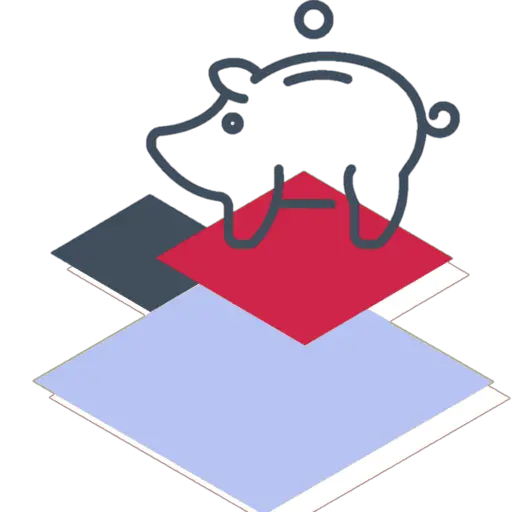

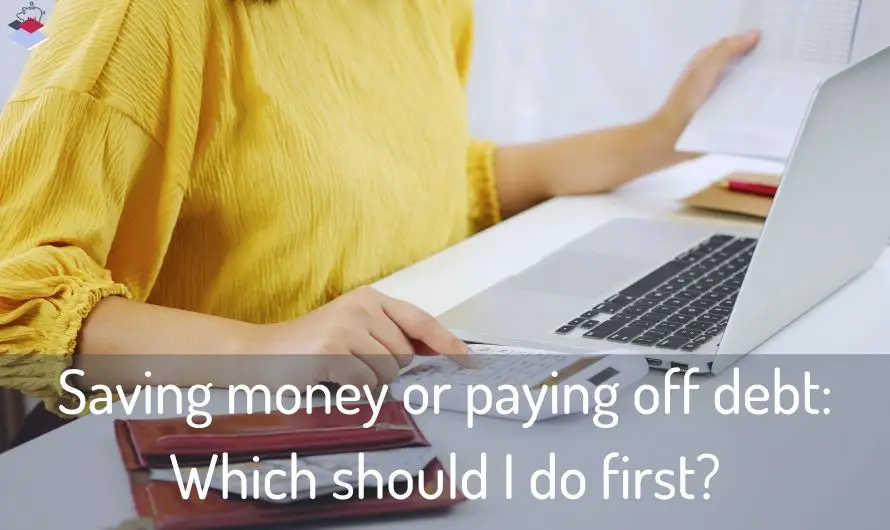
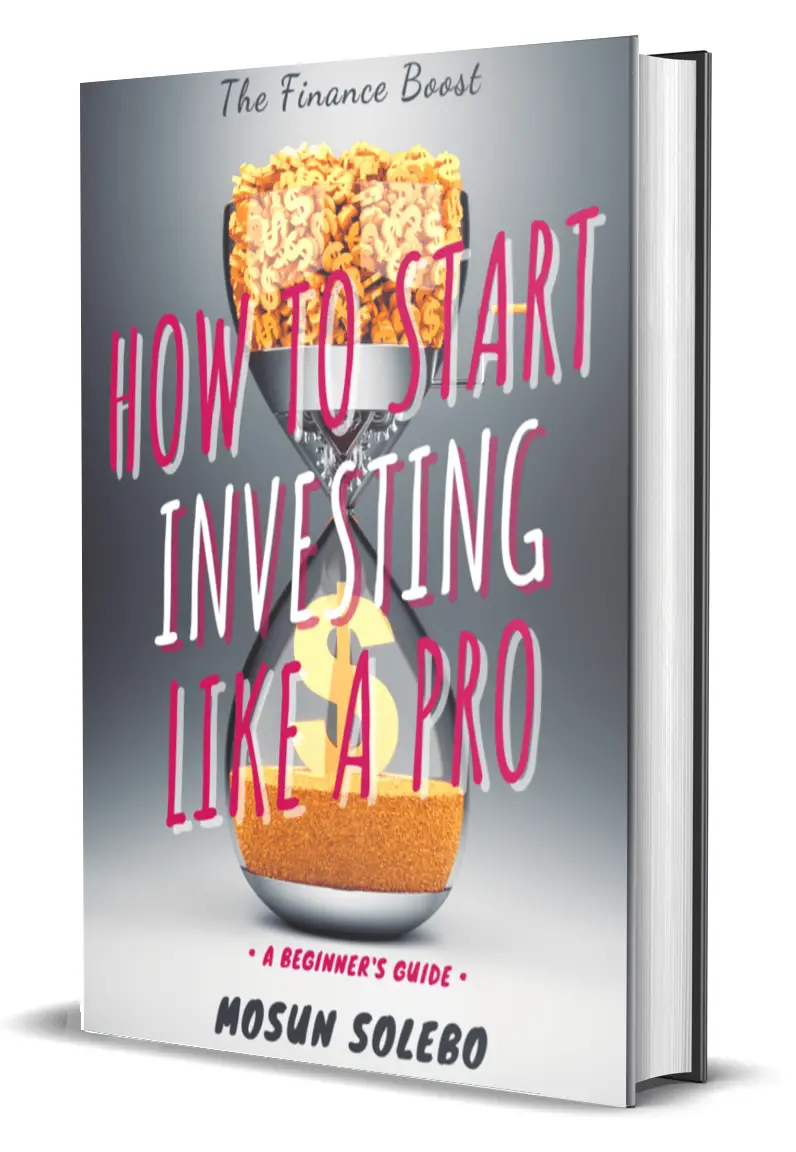
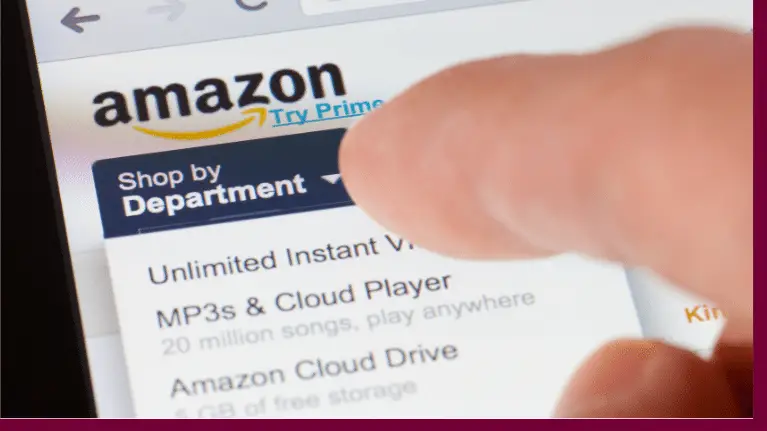


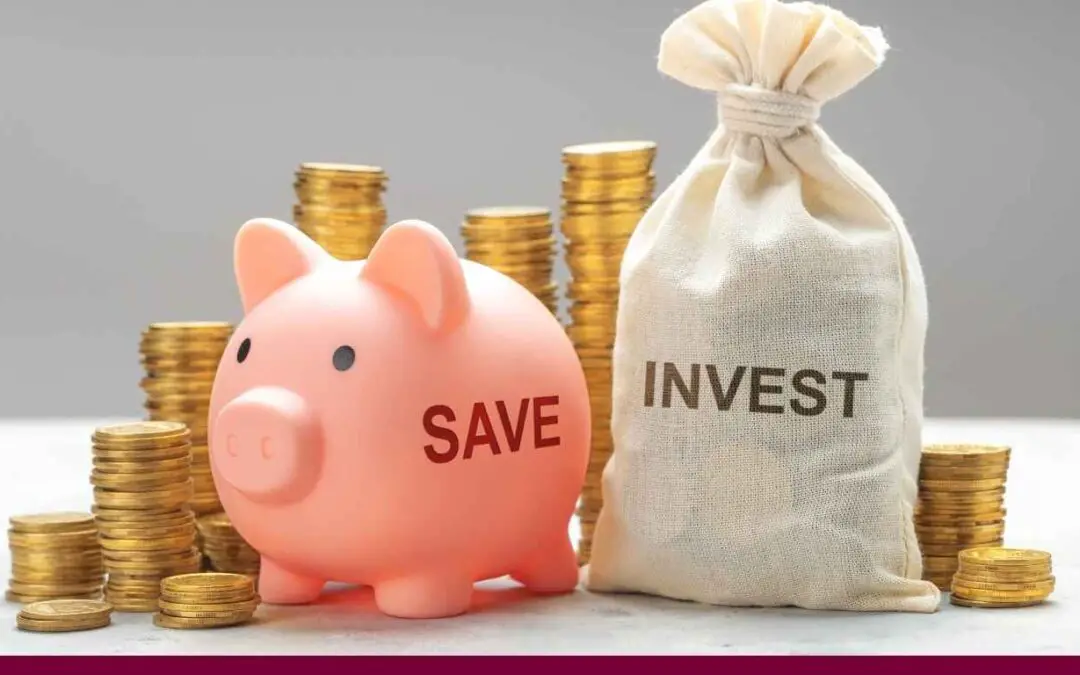
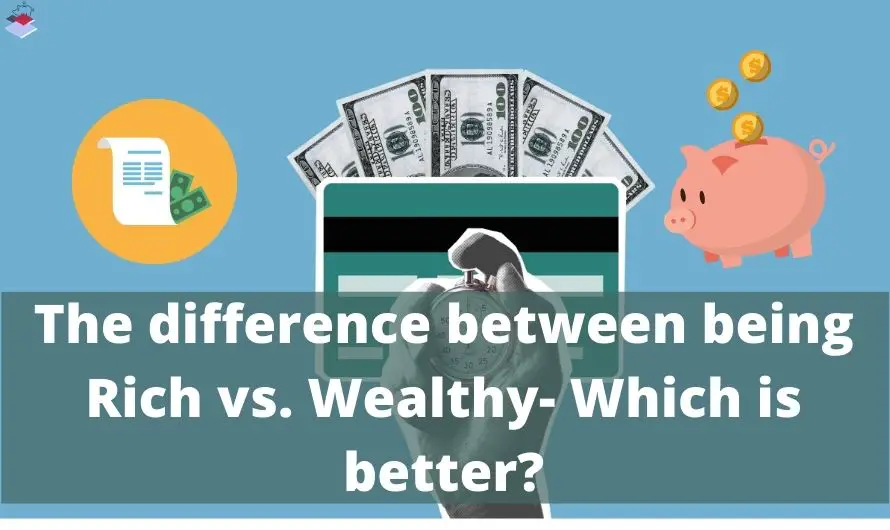

0 Comments
Trackbacks/Pingbacks